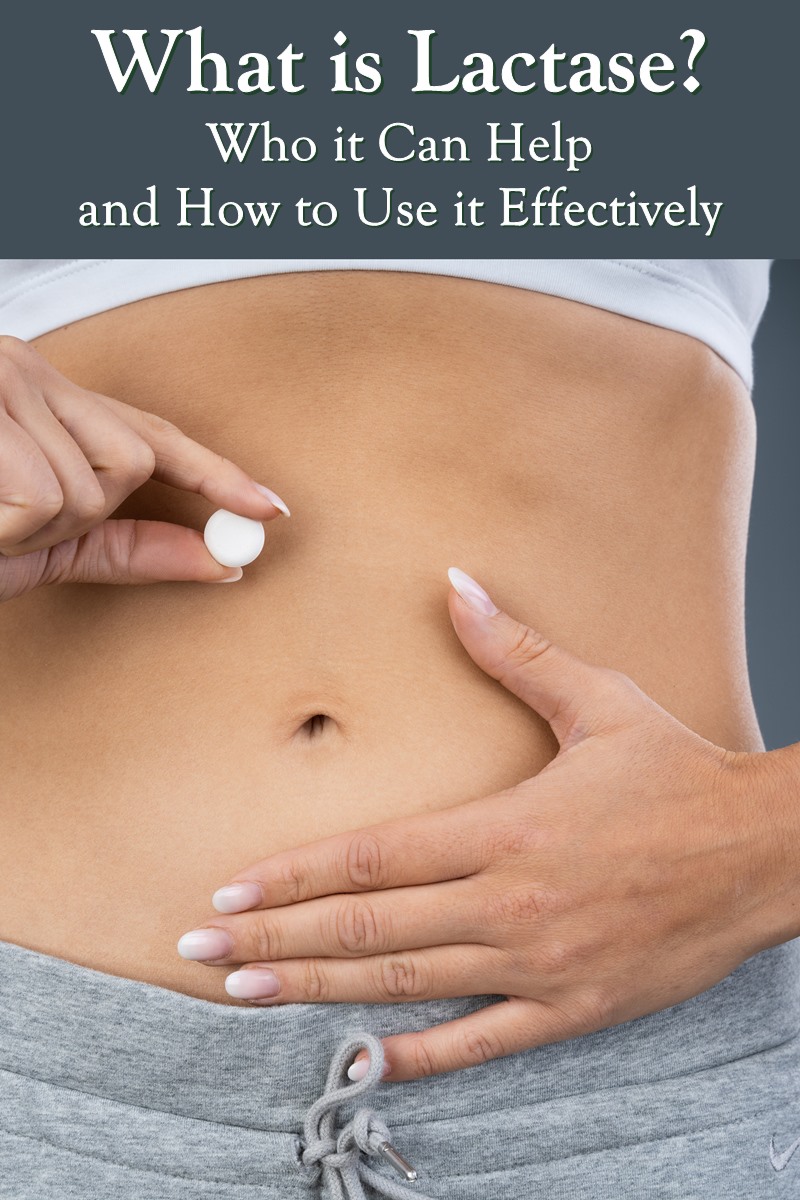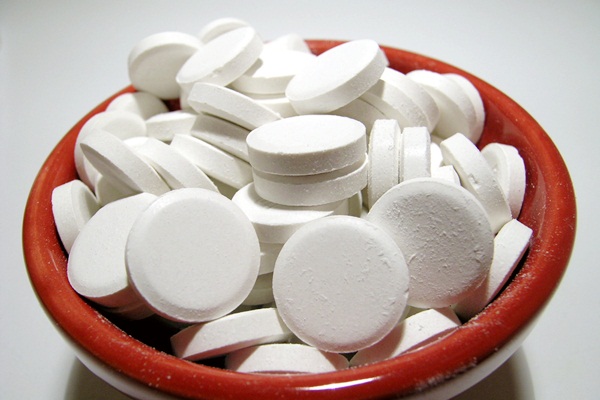Most of us are familiar with lactose (milk sugar), but what is lactase? Contrary to the name, it isn’t milk-derived. It’s an enzyme produced in our digestive system, that breaks down lactose in the intestines. In theory, after the age of two, humans stop consuming their mother’s milk and therefore no longer have a need for high levels of lactase. So after weaning, our bodies naturally decrease the production of lactase. But it’s believed that the introduction of dietary cow’s milk through farming caused some cultures to develop varying levels of “lactase persistence” through the process of evolution.
Lactase enzyme products such as Lactaid and Dairy-Ease “replace” the lactase in our systems temporarily, aiding in the digestion of lactose. For some people, this can be and easy solution, but there are a few things to consider.

What is Lactase? Will it Help with Lactose Intolerance?
Lactase can be a good quick fix for people with lactose intolerance, but it won’t help with any other dairy issues. And there are several things to know if you are thinking about taking lactase enzymes.
Keep a Supply with You
Lactase products come in a pill or liquid form. The liquid is added to milk and allowed to sit for 24 hours. It effectively neutralizes the lactose. The pills are what you take with or just before your first bite of dairy. Typically one to three pills must be taken each time you consume dairy. This is not a “once a day” kind of supplement.
Lactase enzymes are not super-expensive, but if you eat dairy often, you’ll need to stock up. And you’ll want to have them on hand, because they must be taken in a timely manner.
Timing is Everything
If taken on an empty stomach, the high acidity level in your gut will destroy the lactase before it can work its magic. However, you need the lactase to hit your intestines before the lactose arrives. Taking it in the first five minutes of eating is reportedly the most effective timing. You want the lactase to be just a step ahead of the lactose for maximum effectiveness. If you take it after the lactose hits your intestines, it might miss the party.
Dosage is Subjective
Another big question: how much lactase should you take? Most pills have an exact dosage, such as take two, twice a day. However, lactase enzymes are a system of trial and error. Their are two major factors that affect the dosage you need to neutralize symptoms. First, how deficient you are in lactase enzymes (your degree of lactose intolerance at that time). Second, how much lactose you estimate is in what you are about to consume. The typical dosage is one to three pills each time you consumer dairy. You might need less if you’re consuming a low lactose food and/or don’t have severe lactose intolerance.
Lactase is a Treatment, Not a Cure
Unless it was brought on by an acute illness, lactose intolerance is a life-long issue that may progressively worsen over time. In fact, most people develop some degree of lactose intolerance at some point in their life. This means that you will need to diligently take those pills for the rest of your life, and you may even need to up the dosage from time to time (as your natural lactase production continues to deplete).
As a side note, some lactose intolerant women regain the ability to digest lactose during pregnancy, but it’s usually temporary.
You Might Still be a Little Gassy
Researchers at Baylor College of Medicine in Houston tested the most popular lactase enzyme products (such as Lactaid, Dairy Ease and Lactrase) for effectiveness. The results showed some relief of abdominal cramping and bloating, but none of the products they tested had any effects on gas. As for the cramping and bloating, the effects on an individual level varied widely, from significant benefit to no help at all. If the enzymes don’t offer you any relief, your issue might not be lactose intolerance. It’s important to speak with your physician.
They Aren’t Just For Milk and Cheese
Milk, cheese, and cream are obvious sources of dairy, but lactose can also be found in many processed foods. Dairy is used in so many everyday foods, lactose itself is sometimes used as an ingredient, and lactose hides in other dairy ingredients, such as whey. It’s important to check ingredient statements and plan your pills accordingly, otherwise, symptoms may ensue.
It’s Needed for All Types of Dairy
Unlike milk proteins, lactose doesn’t vary between species. It’s made of simple sugars, and is chemically the same, whether from a cow, goat, or even human. So if you need lactase enzymes to digest cow’s milk products, you will need it for goat, sheep, and other mammal milk products, too.
Lactase Enzymes Do NOT Treat Milk Allergies or Milk Protein Intolerance
Lactase should not be taken for milk allergies or other dairy concerns outside of lactose intolerance. It has no known effect on milk proteins or other components of milk. It’s only known purpose is to aid in the break down and subsequent digestion of lactose, the milk sugar. If you believe you are having an allergic reaction, call 911.

The Conclusion
Lactase enzymes might help you get through that monthly office pizza party, or let you splurge on a bowl of your favorite ice cream. But they do need to be taken at the right time, and effectiveness is not guaranteed. If you aren’t ready to cut out dairy, but don’t want to rely too heavily on lactase enzymes, consider seeking out lactose-free products. There are lactose-free dairy milk, ice cream, and cheese brands readily available on the market.
Remember to always consult your physician before making any change in your diet and before adding any supplements, like lactase, to your routine. And if you still get symptoms when consuming lactose-free foods, talk to your physician. Your problem with dairy may go beyond a simple intolerance.


7 Comments
Thank you. I’ve missed critical days at work because of a big bowl of cereal and milk the day before. Twelve hours of diarrhea and 36 trips to the bathroom is no way to start your day at midnight! I’m going to try your book. I’m looking for a guide that will help me gauge my dose better. I almost had an episode at work today! (PS My intolerance started at age 59 and I know I’m 1/4th Irish, 1/8th Italian, and 1/8th Shoshone Indian. The other half is an unknown mix.)
“However, lactase enzymes are a system of trial and error, and error again.”
This line struck such a chord with me. I’ve recently realized that dairy is giving me problems, and I’m floundering my way through figuring out what I can actually eat. I’ve tried the lactase, but as this post pointed out, it’s very hard to estimate the right amount to take.
I’m so thankful to have find this website; it’s got so many helpful tips! I plan to buy the book soon.
Hi Ashley, I’m so happy that I can help, but I hear your frustration!
Pingback: 10 Facts You Didn't Know About Lactose Intolerance - The Town Dish
There is lactase in the creatine I take. But I eat dairy and gluten free. Having that enzyme in my body without ingesting dairy bad?
Thanks
Lactase is a digestive enzyme and not typically derived from dairy – though you may want to check on the source.
Pingback: food allergy blues | Let's be honest….